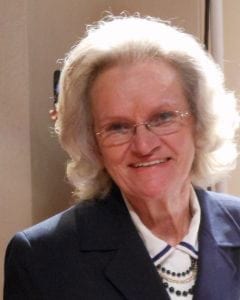There is no way to prepare yourself to hear that your child has an incurable rare disease. After the initial shock of learning that their child will most likely die at a young age, most parents try to get their heads around those facts. Who wants to believe that their child has a terminal disease?
It was over 25 years ago when my family started connecting with other rare disease families. I can’t count how many we have known or how many we have seen suffer the loss of their child. My experience has taught me that, while a profound grief will set in at the time of the child’s death, the grieving actually begins with the diagnosis.
Yes, grieving actually does begin on the day of diagnosis of a fatal rare disease, when families start to live in a new reality, with many of their expectations being shattered.
While people may have different reactions to loss, living each day knowing that your child’s time on earth is limited, can be pretty earth-shattering. In the midst of finding the strength to care for the child, they begin to feel that only others on the same road can truly understand, so they seek to connect with families who also have rare life-limiting conditions.
They find that, even though they have different personalities, and perhaps speak different languages, they share a common bond of having to handle the prospect of burying their own child. Life changes!
They put their own personal goals on the shelf, thus mourning the loss of their own dreams. They fear the decisions they must make and wonder if they will be able cope. They gain strength by connecting with other rare disease families, identifying with others who feel that they could never really explain to anyone what they are going through. The bonds these families make become very strong. They gather together to celebrate every little good advancement that is made, every single accomplishment a child has, and every single goal that is reached.
They don’t dwell on loss, yet grieving multiplies once they connect with others where they all feel deeply one family’s loss of a child. Their own fears become more acute. They hug their children closely while wondering when it will be their turn. If they have already lost a child, they try to find the words to comfort others, knowing the extreme grief they felt with their own loss.
For some, the disease progresses quickly, making all of the moments ever more precious. For others, the progress can take place over many years, but during that time they grieve every time their child loses some function they once had. There may be trips to the emergency department, when they wonder if this is the day they will have to say goodbye. They fear the same thing every time the child undergoes surgery.
They grieve when missing the many events that other families take for granted, and treasure the time they can spend with their child. Well-meaning people making remarks like, “It will all be fine in time,” cause them to cringe. There is nothing fine about watching a child suffer. There is nothing fine about hugging your child for the last time.
They share their research findings, spending many hours looking for medical researchers who might be able to help. And they bond together to raise money for research. However, results don’t come soon enough for the child who will draw their last breath today… and the grieving continues for rare disease families.
 About the Author: Denise Crompton and her husband Bob, raised 4 children, the oldest of whom, Kelley, had the rare disease of Mucolipidosis 3. The many years that they spent caring for Kelley prompted Denise to write two books. Kelley’s Journey: Facing a Rare Disease with Courage chronicles their own daughter’s experiences. Diagnosis: Rare Disease includes some of the experiences of 12 more families, and was written to help raise awareness of all that is involved in living with rare conditions. All of Denise’s royalties go toward rare disease research. The Cromptons live in New Hampshire, where they spend their retirement years enjoying their many grandchildren, while still reaching out to help families with rare diseases.
About the Author: Denise Crompton and her husband Bob, raised 4 children, the oldest of whom, Kelley, had the rare disease of Mucolipidosis 3. The many years that they spent caring for Kelley prompted Denise to write two books. Kelley’s Journey: Facing a Rare Disease with Courage chronicles their own daughter’s experiences. Diagnosis: Rare Disease includes some of the experiences of 12 more families, and was written to help raise awareness of all that is involved in living with rare conditions. All of Denise’s royalties go toward rare disease research. The Cromptons live in New Hampshire, where they spend their retirement years enjoying their many grandchildren, while still reaching out to help families with rare diseases.
Share this #RareMom’s story today!


